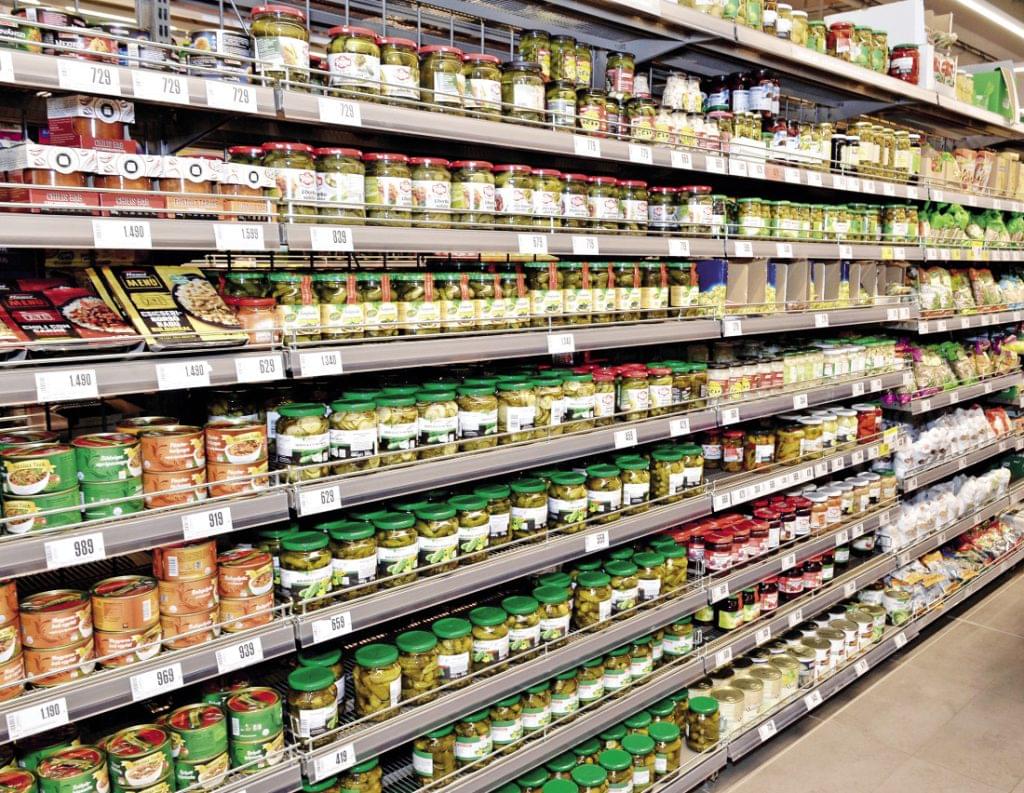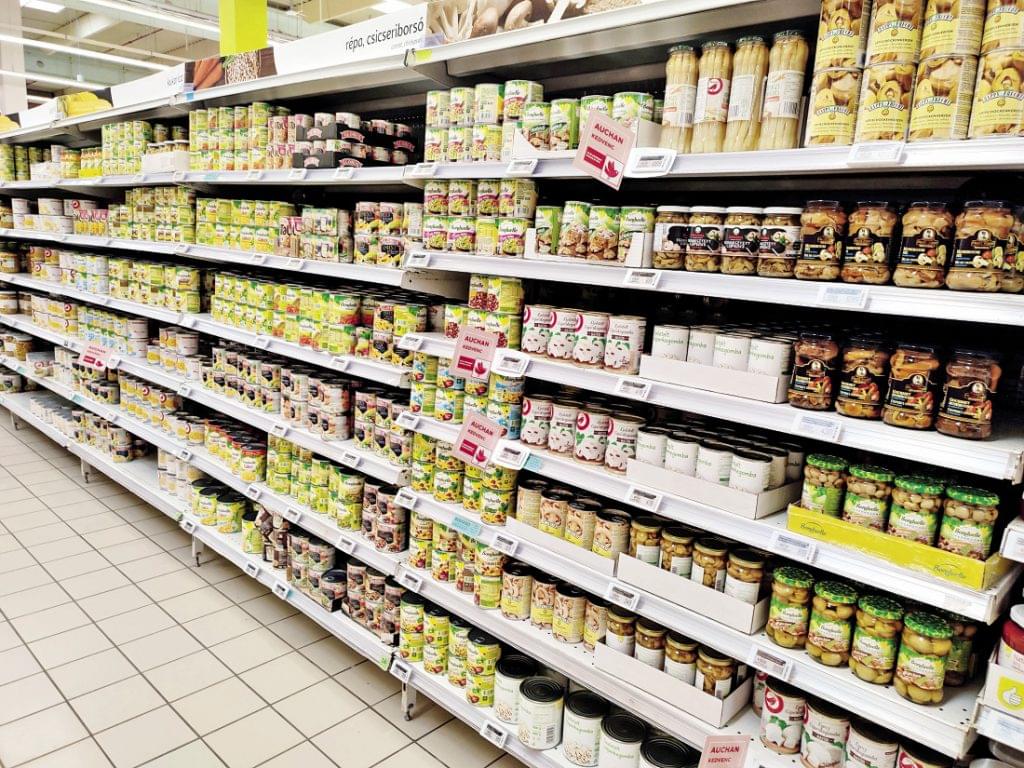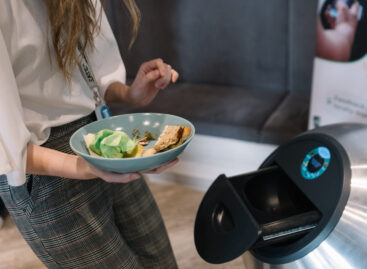Canned food brands and their innovative products
Just like in other food categories, prices are rising in the canned vegetable market as well.

András Szirbek
retail marketing and sales director
Bonduelle Central Europe
András Szirbek, retail marketing and sales director of Bonduelle Central Europe Kft.: “Processed vegetables are still in a better position than fresh vegetables, where prices change several times a year. Plus the prices of other staple foods elevated more than vegetable prices, so demand can even increase for canned vegetables, thanks to their relatively good price-value ratio. Due to the current recession, the market share of smaller-sized products will increase; with larger products, the role of promotions will become more important. The healthy eating trend usually continues even when there is a recession, but the segment of imported luxury products might shrink.”
After a trend reversal

Csilla Kovács
commercial director
Ga Food
We learned from Csilla Kovács, commercial director of Ga Food Kft. that the pandemic entailed a trend reversal: “Before the pandemic demand for canned food had been slowly but steadily diminishing, as consumption habits were changing and fresh foods entered the spotlight. When the pandemic broke out, this trend turned around and people started stockpiling groceries with a long shelf life, mainly canned foods.” She called attention to the fact that private labels aren’t in the first-price category anymore, probably because of the exchange rate fluctuation and the hardships in ingredient supply.

Marianna Zsoldos
managing director
Szatmári Konzervgyár
Marianna Zsoldos, managing director of Szatmári Konzervgyár Kft.: “Sales of classic canned food products keep declining. At the same time demand is growing dynamically for those products that contain no added sugar, and for ready-to-eat canned foods.”

Krisztina Józsáné Danyi
marketing manager
Szegedi Paprika
Krisztina Józsáné Danyi, marketing manager of Szegedi Paprika Zrt.: “Our sales decreased a little because of the growing overhead costs and rising food prices, but the current situation is good for the performance of convenience products. Sales are definitely improving in the private label segment. Shoppers prefer our large-sized products and our promotions generate greater attention, too.”
Message: natural, Hungarian!
In the past few years Bonduelle Central Europe Kft. was focusing heavily on Hungarian-made products. The company rolled out Gold Prémium in the sweet corn category, and last winter they came out with the Good Lunch range – the latter is made with different cereals, pulses and vegetables, and it only takes 1 minute to prepare a wholesome, tasty meal or side dish. Mr Szirbek underlined that their products are 100% natural and additive-free, and all of their sweet corns are free from fertiliser residues.
2022 and 2023 is about optimisation at Ga Food Kft. Ms Kovács informed they would also like to add new products to the Hungarian assortment, which are already available in other countries. The company believes that innovation work builds the market and makes an impact in the long run. This is why Ga Food Kft. is monitoring consumer feedback and partner needs all the time. In marketing they heavily rely on POS tools, delivering impulsive messages via tasting sessions and tailor-made activities for various chains.

According to what brand manufacturers say customers of premium product tend not to largely change their shopping habits: there is a group of customers in for which quality takes precedence over quantity
The goal: convenient and healthy
Szatmári Konzervgyár’s innovation work is in line with the latest trend of cutting down on meat consumption or quitting meat completely. Parallel to this, the role of vegetables is becoming more important in people’s diets. Ms Zsoldos revealed that they also educate consumers about vegetable use, for instance telling them that vegetables aren’t only good for making side dishes, but also for ready meals. This year the company will put its own tomato soup on the market.

In line with European trends, the market of legumes keeps growing, with sweet corn playing a decisive role
Krisztina Danyi talked about Szegedi Paprika Zrt. using pork fat instead of cooking oil in certain products, because of the current ingredient supply problems. In certain ready meals they use neither fat, nor oil. The company participates in the campaigns of Hungarian Product Nonprofit Kft., which promote Hungarian-made products. //
Manufacturer brands and private labels are neck and neck in the canned vegetables category
Hungarian shoppers took home more than 24 tonnes of canned vegetables between October 2021 and September 2022, spending about HUF 20bn on the category. Compared with the base period, value sales jumped 10% but volume sales dropped 3%. As for the place of buying, stores with a floor space between 401 and 2,500m² generated 48% of sales.


Guest writer:
Luca Horváth
jr. analytic insights associate
NielsenIQ
Branded products and private labels (PL) had an approximately 50% market share each. PL value sales were up 9% and value sales of branded products grew by 11%; volume sales decreased by 2% and 4%, respectively. Canned corn was the most popular, realising nearly one third of value sales. 22% of products were sold in a glass jar, which gives a 78% market share to the aluminium can format. Size-wise 301-350g canned vegetables were the most popular.
Canned fish sales augmented by 16% in value and 13% in volume, increasing the size of the category to HUF 16bn. 401-2,500m² stores realised 61% of values sales, and the most popular variety was canned tuna, which makes up for 52% of the market. Manufacturer brands were responsible for 71% of value sales. //
This article is available for reading in Trade magazin 2022.12-01.
Related news
Hungarian Product is 20 years old – a reliable compass in the domestic FMCG sector
🎧 Hallgasd a cikket: Lejátszás Szünet Folytatás Leállítás Nyelv: Auto…
Read more >Latest global phenomena discussed in the Mesterművek business club
🎧 Hallgasd a cikket: Lejátszás Szünet Folytatás Leállítás Nyelv: Auto…
Read more >We took you on a flight! (Part 1)
🎧 Hallgasd a cikket: Lejátszás Szünet Folytatás Leállítás Nyelv: Auto…
Read more >Related news
Discover the solutions of the future on Startup Island! (Part 2)
🎧 Hallgasd a cikket: Lejátszás Szünet Folytatás Leállítás Nyelv: Auto…
Read more >








